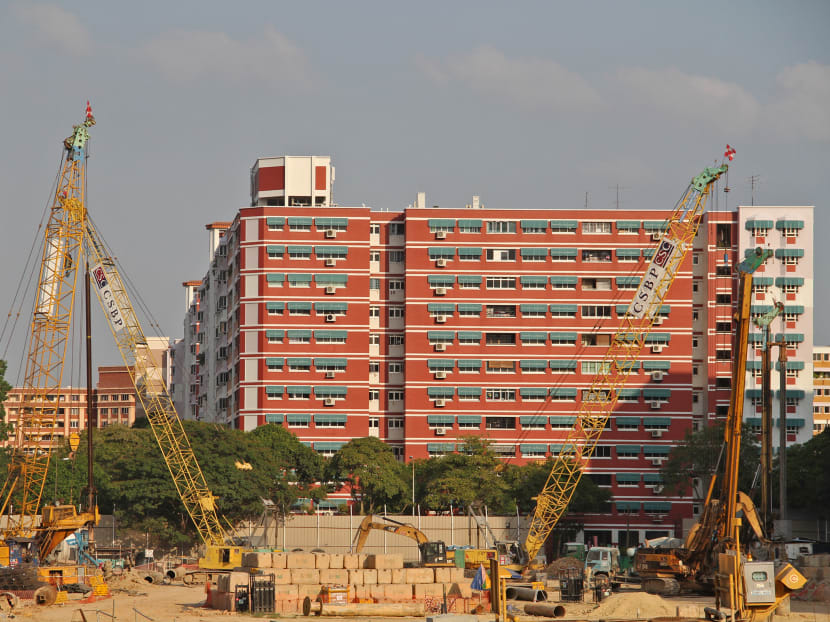REDAS warns of ‘downward spiral’ if curbs not re-examined
SINGAPORE — In its latest call for the Government to scale back on property curbs, the Real Estate Developers’ Association of Singapore (REDAS) cautioned about a collapse in the housing market, saying that a deterioration in economic sentiment, dwindling sales and greater upcoming supply would risk precipitating a downward spiral of property prices.

TODAY file photo
SINGAPORE — In its latest call for the Government to scale back on property curbs, the Real Estate Developers’ Association of Singapore (REDAS) cautioned about a collapse in the housing market, saying that a deterioration in economic sentiment, dwindling sales and greater upcoming supply would risk precipitating a downward spiral of property prices.
“The property market is clearly heading for a different phase, and there is an urgent need to think about how we can manage the exit so that there is a soft landing for the market,” REDAS president Augustine Tan said at the association’s Mid-Autumn Festival lunch today (Sept 16).
“As Minister Khaw Boon Wan said, ‘Collapse of the housing market benefits no one’. This is the chief worry of developers and the many diverse stakeholders of the real estate ecosystem. The property cooling measures, in the current tone and intensity, could actually increase the risk to the real estate market and economy,” added Mr Tan, who is also the executive director for property sales at Far East Organization.
He called for property cooling measures to be re-examined to minimise risks from an uncertain global economic conditions, adding that REDAS would work with government agencies in the coming weeks to offer their input. Mr Tan’s comments echo earlier calls for the curbs to be tweaked or lifted by several industry players, most notably City Developments Limited’s (CDL) executive chairman Kwek Leng Beng.
The Government started putting in place curbs since 2009 to cool a domestic property market that was heating up. These measures include the Additional Buyer’s Stamp Duty, tighter Loan-to-Value limits and Seller’s Stamp Duty. Besides these, the Monetary Authority of Singapore (MAS) also introduced the Total Debt Servicing Ratio framework as a macroprudential measure.
As a result, private home prices posted a seventh consecutive quarter of decline in the second quarter — the longest losing streak in 13 years — with prices down 6.7 per cent from the recent peak in the third quarter of 2013, Urban Redevelopment Authority (URA) data showed.
Developers’ sales have also suffered. Last year, annual new home sales crashed by half to around 7,600 units, the lowest since the 2008 financial crisis, showed URA data.
This year does not look any better. Between January and June this year, developers sold a total of 3,600 units, less than half of last year’s. On a monthly basis, transaction volume has fallen by more than 80 per cent since the peak in early 2013, Mr Tan noted.
That said, the recent raise in eligibility income ceiling for executive condominiums could bring some respite to developers. The limit was increased to S$14,000 from the previous S$12,000 last month.
Nevertheless, amid more than 67,000 incomplete private homes in the pipeline and fewer expatriates, the vacancy rate may hit 10 per cent by the end of this year, Mr Tan said.
“The property cooling measures were put in place in a period when quantitative easing and a flush of liquidity had fuelled record transactions and prices. Today, it is a very different picture,” he said.
“This deterioration in economic sentiment, the worsening supply-demand imbalance and rising vacancy rates risk precipitating a downward spiralling of property prices when people are selling because prices are falling,” he added.
Several ministers, including Mr Khaw and Deputy Prime Minister and Finance Minister Tharman Shanmugaratnam, had signalled that the Government does not intend to relax the measures soon, saying prices have some way to go before achieving a meaningful correction.
MAS’ managing director Ravi Menon had also said it would be premature to remove the measures as the price correction has been modest, in the context of a 60 per cent increase in property prices that, over three years, reached its peak in 2013.






